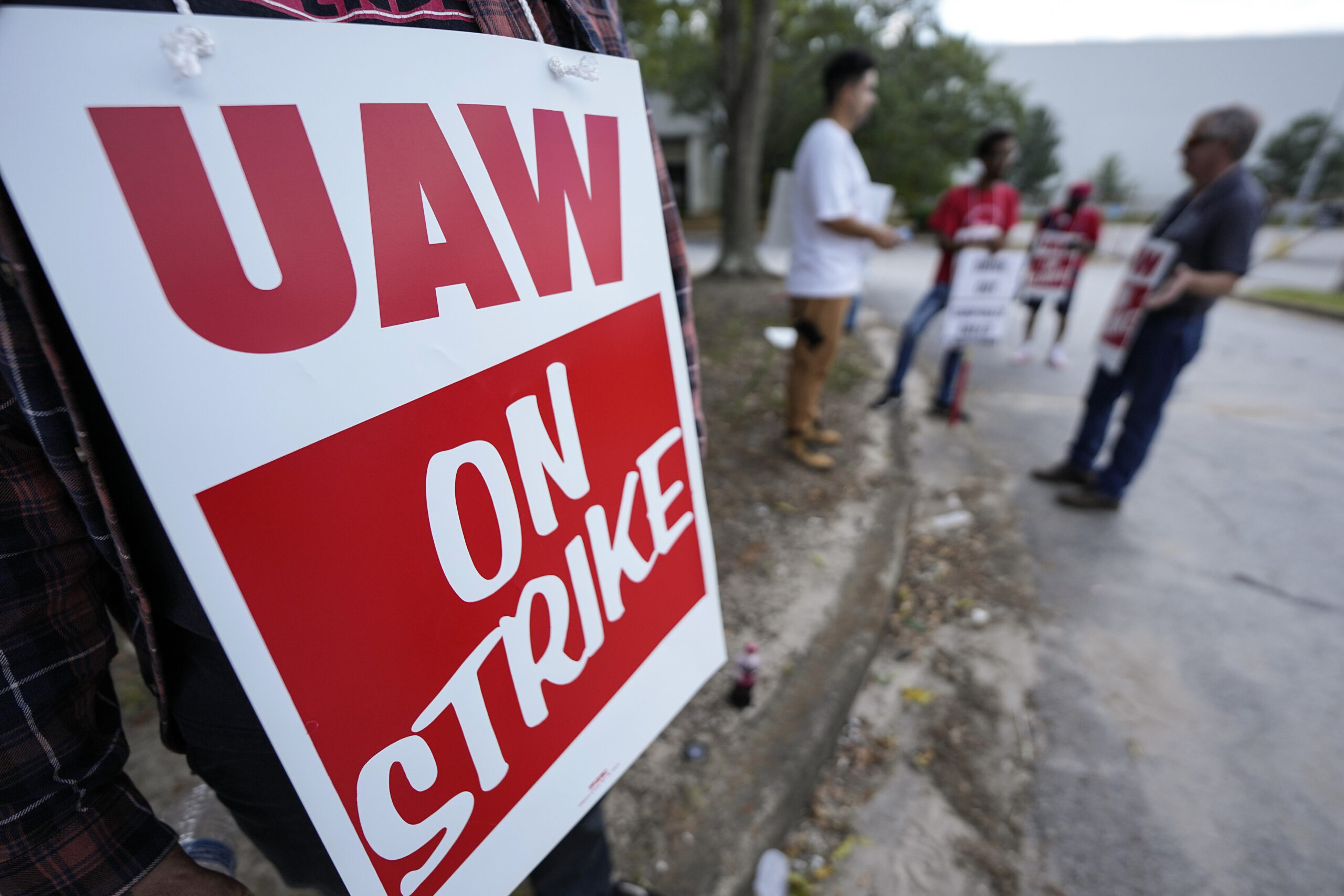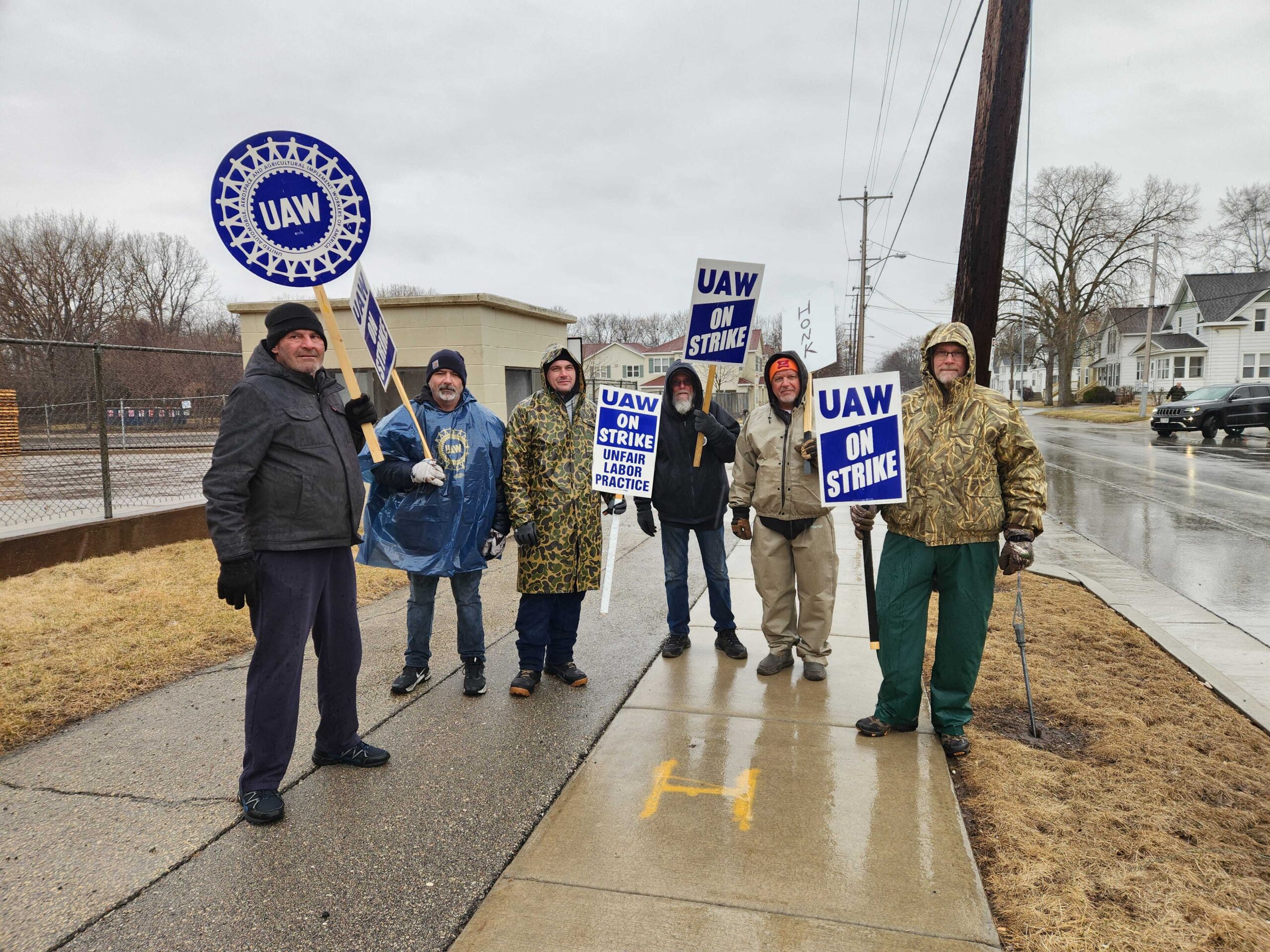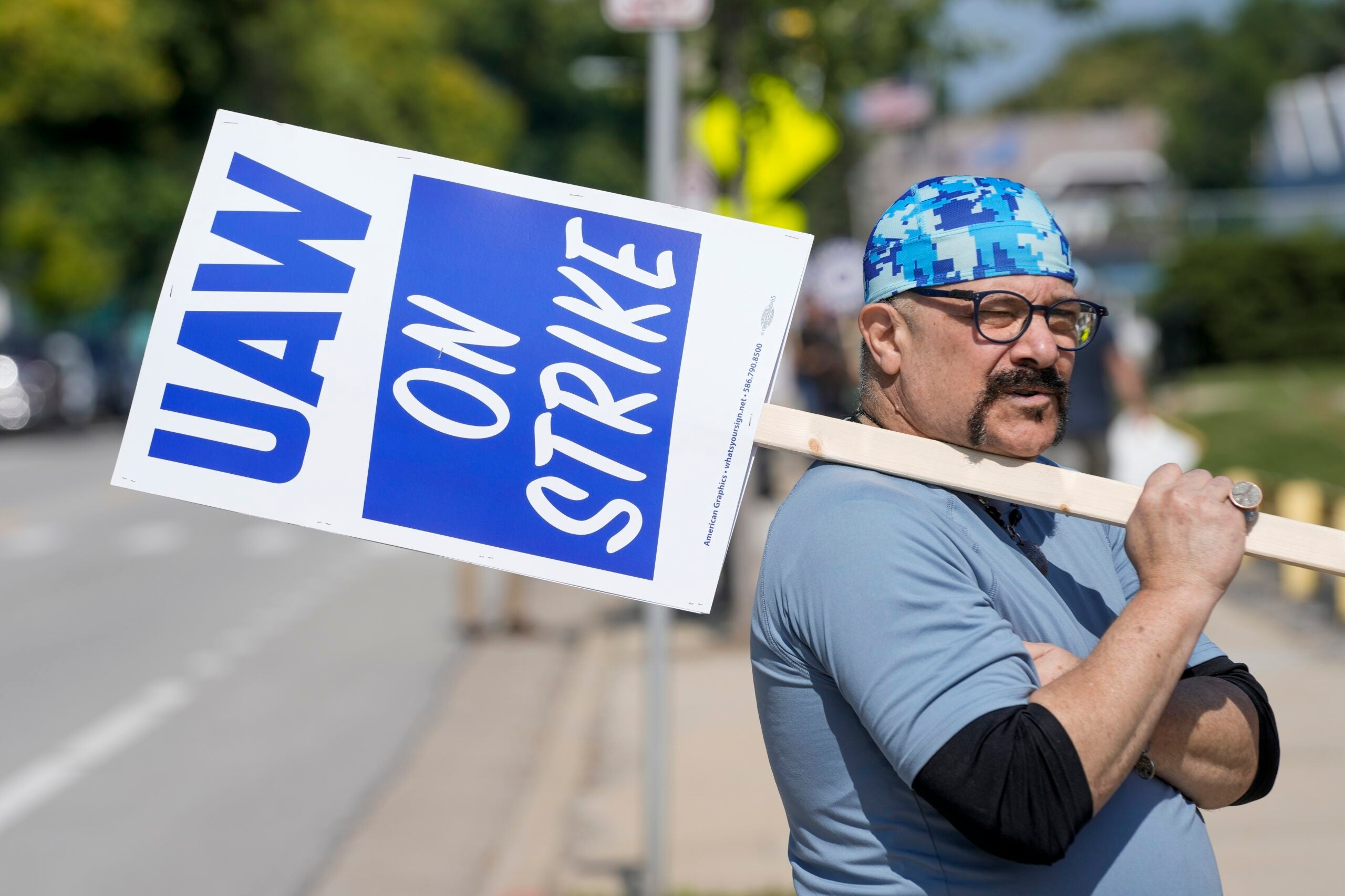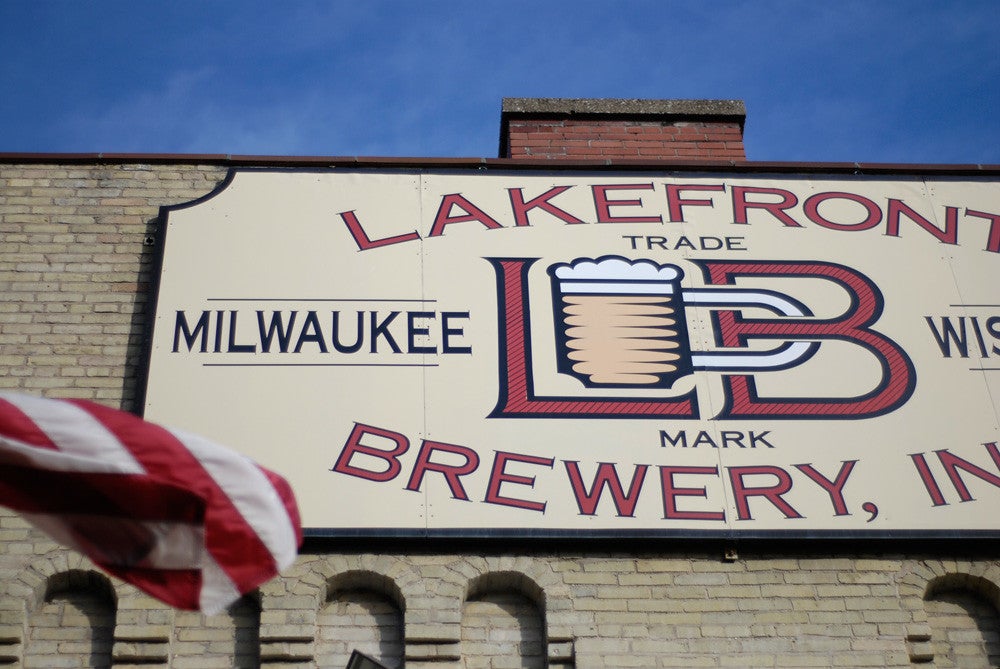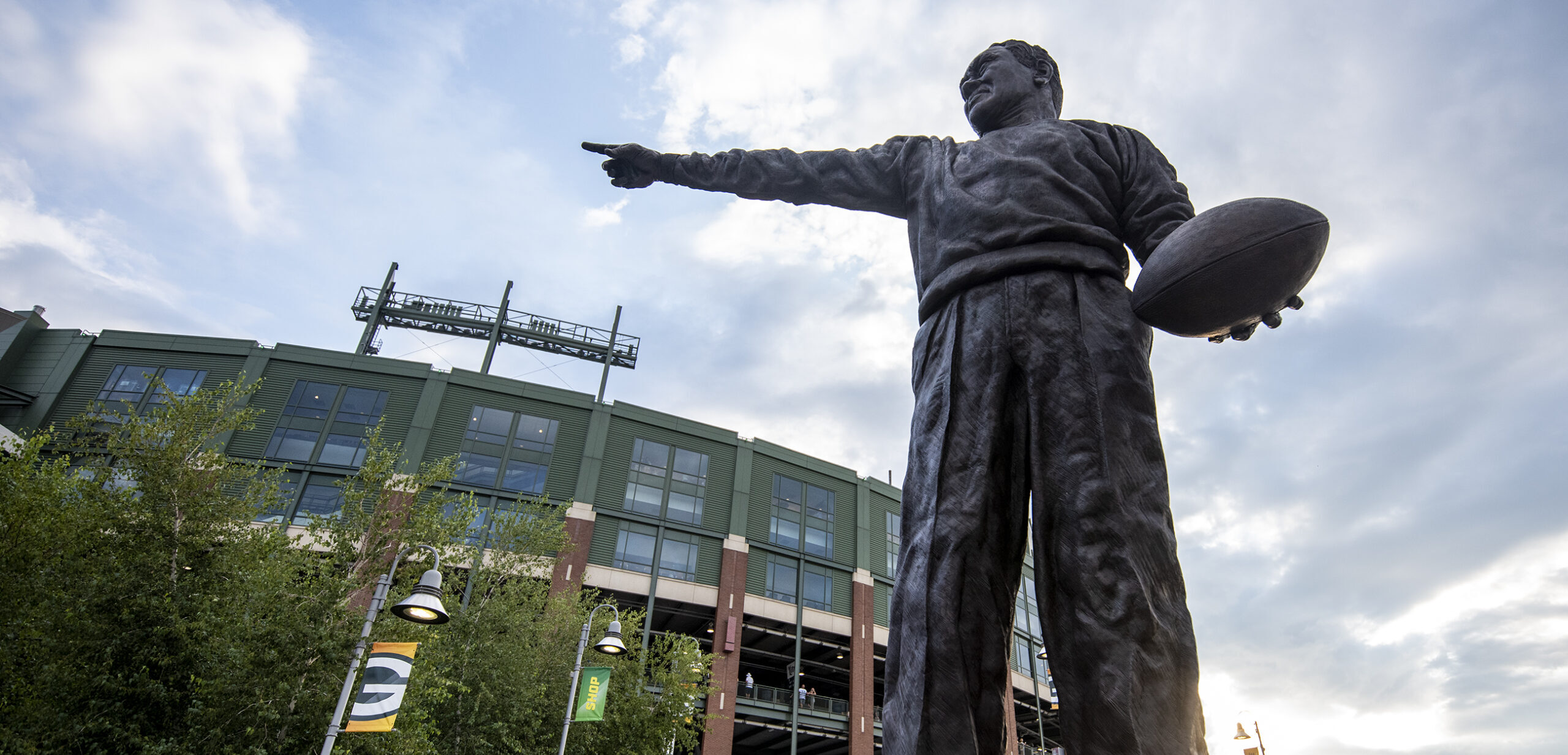Wisconsin members of the United Auto Workers will soon vote on whether to ratify new contracts with each of nation’s largest automakers now that the union and the companies have reached tentative deals for the next four and a half years.
Workers at a General Motors site in Hudson and a Stellantis plant in Milwaukee are already back on the job, while Ford workers in Menomonie never walked out.
The Milwaukee site is slated to close under the agreement between the UAW and Stellantis, Chrysler’s parent company. The site has about 100 workers who have been offered the opportunity to transfer to other locations, UAW president Shawn Fain said last week.
Stay informed on the latest news
Sign up for WPR’s email newsletter.
Steve Frisque, president of UAW Local 722 representing Hudson and Menomonie, said he expects his members will support their respective deals. At Ford’s Michigan Assembly Plant, 82 percent of workers voted in support of the pact last week.
Ford workers in Menomonie will vote on Thursday, and GM workers in Hudson will vote early next week.
The agreement between GM and the UAW includes a 25 percent pay increase through 2028, along with cost of living adjustments that will raise the top wage to more than $42 an hour. The starting wage will be more than $30 an hour after cost of living increases.
“Some of these people are gonna jump up significantly. It’s gonna be life changing for them,” Frisque said. “For a lot of the younger people that were working for $18, $19 an hour, this is really going to significantly boost their way of life.”
GM was the last of the automakers, often referred to as the “Big Three,” to reach a deal with the UAW. About a third of the union’s 146,000 workers went on strike after their previous contracts expired on Sept. 14.
GM workers in Hudson were on strike for 39 days.
The union took the unprecedented step of negotiating with all three automakers at once — and escalating the stoppages at new sites as the stroke wore on.
Previously, the union would target one automaker and then the other agreements would follow the same parameters. The outcome ended up being similar this time, as the UAW first came to an agreement with Ford, while Stellantis and GM reached similar deals within a few days of each other at the end of last month.
“Like the agreements with Ford and Stellantis, the GM agreement has turned record profits into a record contract,” UAW communications director Jonah Furman said in a release. “The deal includes gains valued at more than four times the gains from the union’s 2019 contract.”
The union had conceded cost of living increases to help the automakers stave off bankruptcy 15 years ago, and reinstating those increases was a goal in these negotiations.
The union also scored a victory with the elimination of lower wage levels for workers hired after 2008, a system it said had divided workers.
Frisque said the union didn’t get everything it wanted. There was no reinstatement of retirement plans for those hired after 2008, he said.
Instead, the UAW touted five payments of $500 to current retirees and surviving spouses, the first such payments in 15 years.
Other new benefits include a paid holiday for Juneteenth and two weeks of paternity leave.
“Also, we didn’t lose anything,” Frisque said, noting all health benefits remain the same.
Frisque said a string of recent union victories will increase the popularity of unions.
“I think this is a huge organizing tool for the UAW and unions in general. They’ve seen how the Teamsters came out this year against UPS. They saw us, the UAW with the Big Three,” he said. “There’s a lot more interest today, especially with the younger generation, of being a part of a union.”
Workers at the GM plant will likely now be working up to seven days a week and 10 to 12 hours a day for the next few months. Frisque said dealing with a backlog was a known consequence of striking.
GM Chair and CEO Mary Barra said in a written statement last week that the tentative agreements reflect the contributions of the team while enabling the country to provide good jobs in the U.S.
“We are looking forward to having everyone back to work across all of our operations, delivering great products for our customers, and winning as one team,” Barra said.
Wisconsin Public Radio, © Copyright 2025, Board of Regents of the University of Wisconsin System and Wisconsin Educational Communications Board.
